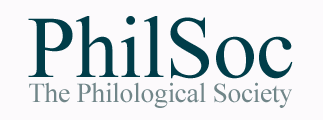Organised in association with the British Academy, this year's Anna Morpurgo Davies lecture will be held at the Royal Society and broadcast online.
Registration is required for both in-person and online attendance; please register using this link.
Like all ordinary meetings of the Society, the lecture will commence at 4:15pm. Instead of the usual tea before, this lecture will be followed by a drinks reception.
This talk will looks as some of the challenges and discoveries associated with using social media (Twitter/X) as a source for examining dialect variation and change. Messages from social media constitute a fantastic source of evidence for linguistic diversity, much of which is otherwise inaccessible, allowing us to see patterns of linguistic variation across thousands, sometimes even millions, of people. We will look at some of the results of the Tweetolectology project, which has been mapping linguistic variation across various countries, with case studies from Welsh, English and Haitian Creole framed around key research or methodological issues of broad general interest

